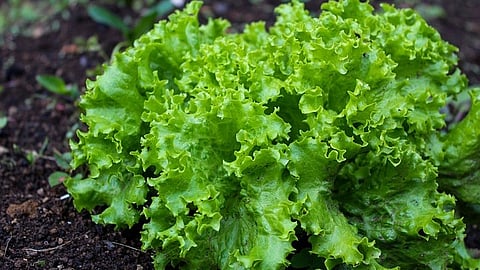

An E. coli outbreak in the UK, affecting over 200 people, has been linked to contaminated lettuce leaves. The Food Standards Agency (FSA) announced that "confident" lettuce is the source, prompting major supermarkets to recall sandwiches containing salad leaves.
Nicholas Brown, a consultant microbiologist at Addenbrooke's Hospital, explains that recent cases of hemolytic uremic syndrome and children with bloody diarrhea have been reported across the country. National surveillance identified a common genetic link in the E. coli strains, pointing to a shared source, though the dispersed nature of the cases complicates pinpointing the exact origin.
E. coli is a common gut bacteria found in humans and animals. While most strains are harmless, some, like shiga toxin-producing E. coli, can cause severe illnesses, including bloody diarrhea and hemolytic uremic syndrome, especially in children. These strains are typically carried in the guts of animals, and humans usually contract them through direct contact with animal feces or contaminated food.
The contamination likely occurred due to fecal contamination of raw materials at the source, possibly from farms with both crops and livestock. According to Professor Jim Monaghan from Harper Adams University, E. coli can be found in 10–15% of dairy herds, meaning that some manure used for fertilization may carry the bacteria. The bacteria could contaminate lettuce directly through manure or indirectly through soil or water.
Farmers are required to wait at least a year before planting lettuce in fields fertilized with manure to prevent contamination. They also test irrigation water to ensure it's safe. Despite these precautions, something went wrong, leading to this outbreak. The FSA has not disclosed whether the contaminated lettuce was UK-grown or imported.
Public health officials, including the UK Health Security Agency, are conducting an ongoing investigation to identify the outbreak's root cause. Detailed food histories from affected individuals help piece together potential sources, though recalling specific foods eaten weeks prior can be challenging.
Most E. coli infections resolve without specific treatment, requiring only supportive care like fluid resuscitation. However, severe cases, especially in young children, may lead to hemolytic uremic syndrome, a serious condition requiring intensive medical care.
Sky News reports that the wet weather may have contributed to the outbreak, as E. coli thrives in damp conditions. The bacteria struggle to survive in hot, sunny conditions where UV rays can kill them. Recent damp weather in the UK and Europe might have created favorable conditions for the bacteria.
The FSA continues to monitor the situation and has recalled dozens of potentially contaminated products as a precaution. While no E. coli has been found in these products, the recall aims to prevent further cases. Health officials advise the public to wash raw vegetables thoroughly, as washing can reduce but not completely eliminate bacteria.
Professor Monaghan reassures customers that, although they should exercise caution, the hazardous products have probably departed the supply chain. He continues to buy lettuce in spite of the outbreak because he has faith in the strict risk management practices of UK farmers.
(Input from various sources)
(Rehash/ Susmita Bhandary/MSM)
